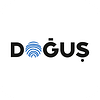This five-day course is designed for those who want to broaden their mathematical knowledge beyond Statistics and Probability for Data Science. Perhaps with the aim of increasing your understanding of existing Python or R packages, or in order to progress towards developing your own methods and algorithms.
This course introduces concepts with practical programming exercises and covers essential topics for Data Science such as Vectors, Matrices, Calculus, and how these are applied in common Data Science problems for business uses.
You will also have the opportunity to learn a wide range of notations and terminology in order to support you in reading books and journal articles intended for Data Science audiences.
Following this, you will be exposed to topics to introduce you to areas at the cutting edge of Data Science: Graph analytics, AI and Deep Learning, and Quantum Computing Development.
For those wishing to certify as Data Scientists this course is aligned with many certifications and professional frameworks in order to support you on your learning journey.
It is expected that you will have experience with Python or R and Statistics for Data Analysis. It would be beneficial, but not essential to be familiar with algebra and functions such as quadratics and trigonometry.
Target Audience
This course is for individuals who have experience with Python or R in the context of a Data Science or related field.
- Data Scientists
- Software Developers
- Advanced Data Analysts
- ML / AI Data Engineers
























